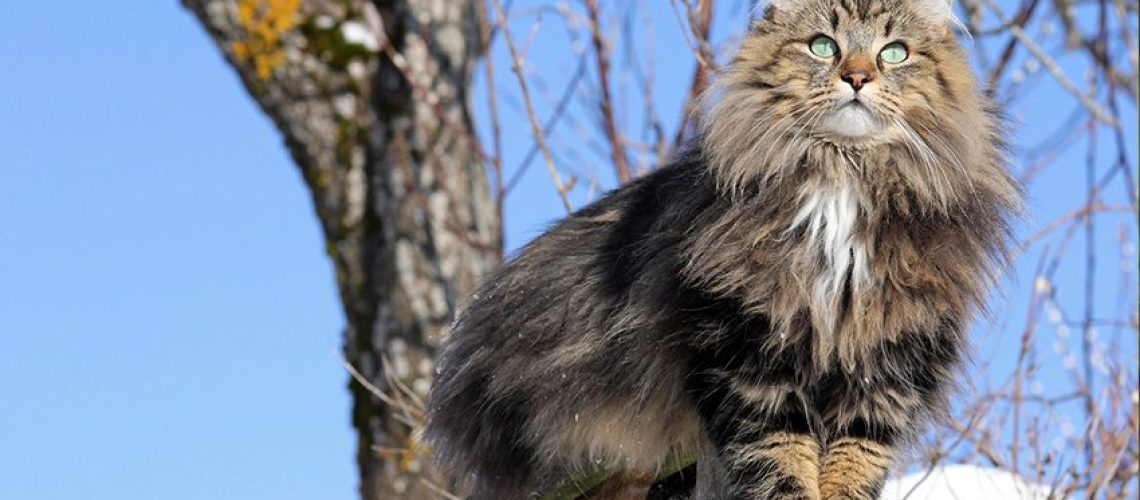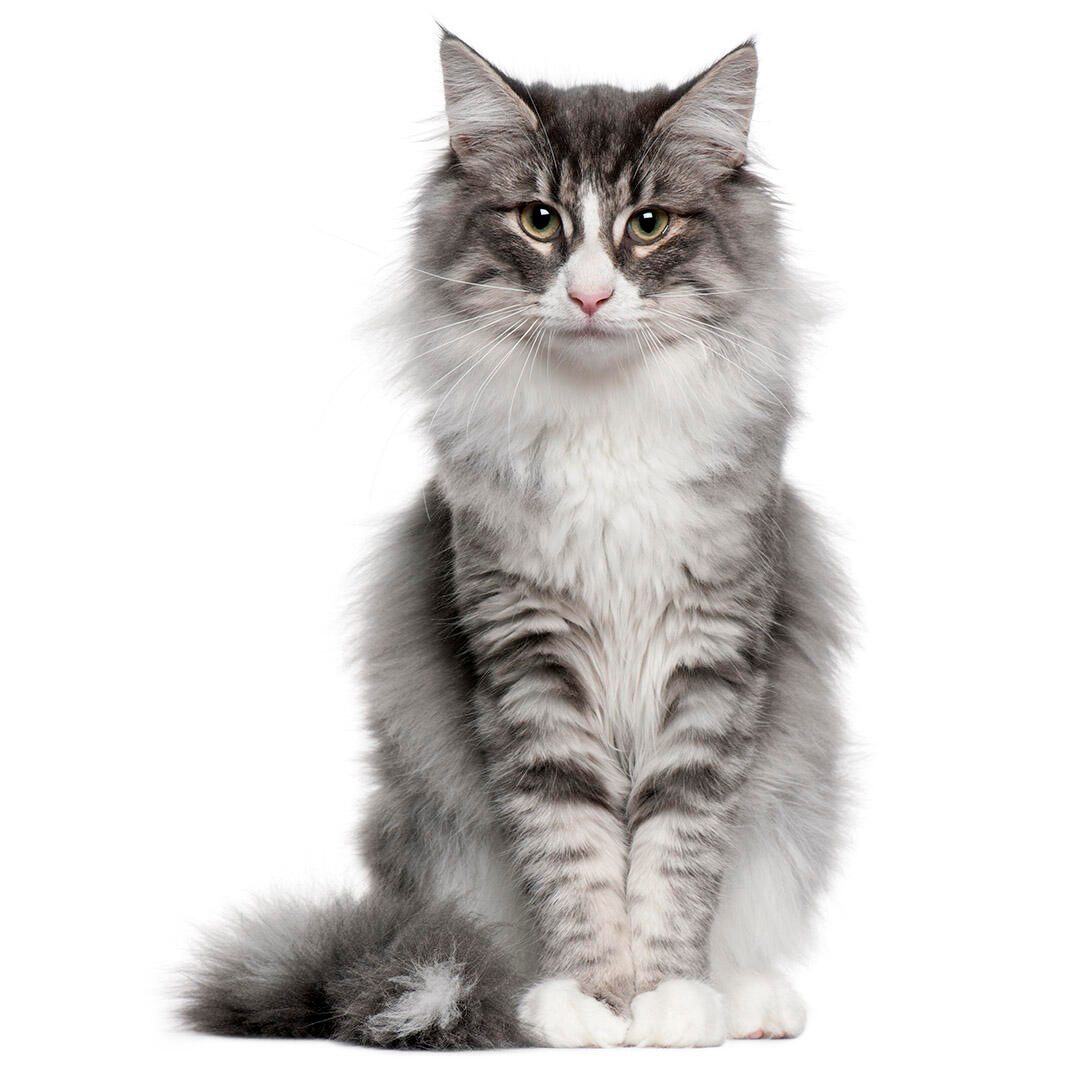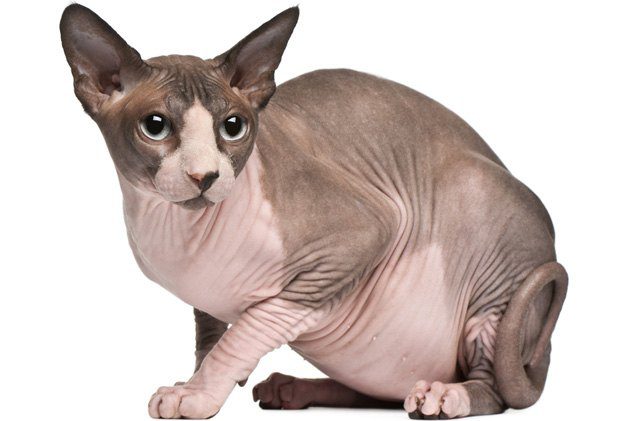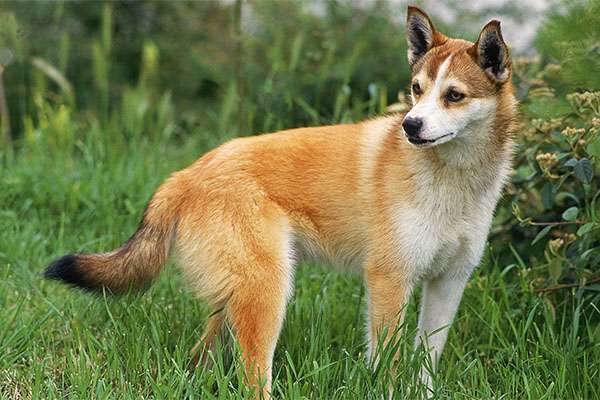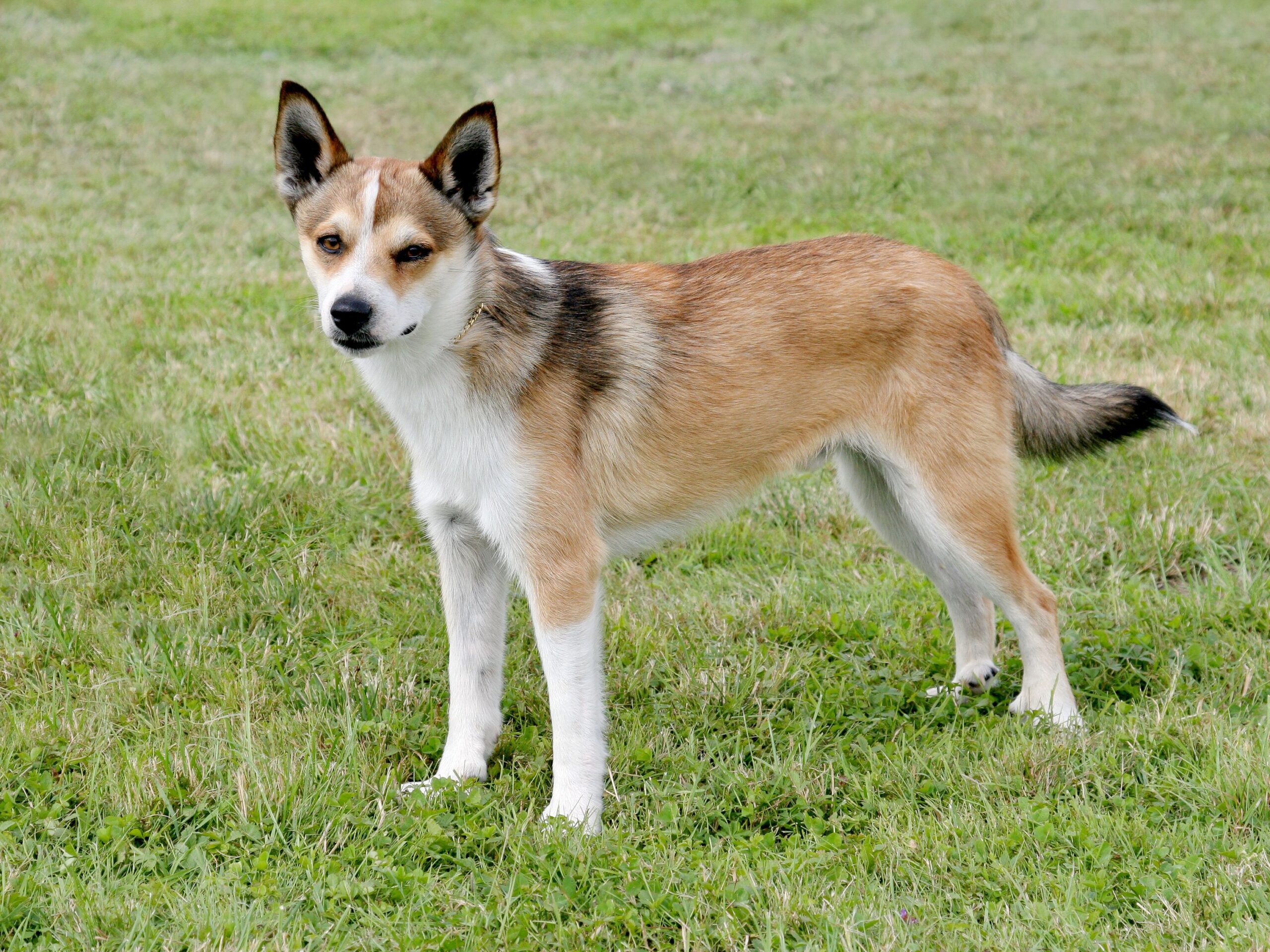Are you ready to embark on a delightful journey into the enchanting world of Norwegian Forest Cats? Get ready to be captivated by these majestic creatures as we explore their unique characteristics and discover why they are the perfect addition to any family. So, grab your favorite cozy spot and prepare to be whisked away into the pictorial wonderland that awaits you. Let's dive in and uncover the secrets behind these mesmerizing creatures – it's time for a purr-fect adventure!
Key Takeaways:
- Norwegian Forest Cats are known for their stunning appearance and majestic presence.
- These cats have a thick double coat that helps them survive in cold climates.
- They have a playful and friendly nature, making them great companions for families.
- Norwegian Forest Cats require regular grooming to maintain the health of their luxurious coats.
- These cats have a strong hunting instinct and enjoy exploring the outdoors, but they can also adapt well to indoor living.
What is a Norwegian Forest Cat?
Norwegian Forest Cats are a unique breed of cats known for their long, thick fur and large size. They originated in Norway and have been around for hundreds of years. These cats are often called "Wegies" for short. Wegies have a distinctive appearance with their bushy tails, tufted ears, and strong bodies.
These cats are well-known for their hunting skills and agility. They have strong muscles that allow them to climb trees easily and jump long distances. Wegies also have excellent night vision, which helps them navigate in the dark. Their thick fur protects them from the cold weather, making them well-suited for life in colder climates.
The Origins of Norwegian Forest Cats
Norwegian Forest Cats have a rich history that dates back to ancient times. It is believed that these cats were brought to Norway by Vikings during their travels. They were highly valued for their hunting abilities and were often kept on Viking ships to control the rat population.
Over time, Norwegian Forest Cats adapted to the harsh Scandinavian climate. Their long, water-resistant fur helped protect them from the cold winters, while their muscular bodies allowed them to navigate through snow-covered landscapes with ease.
Distinctive Physical Features
- Bushy tails
- Tufted ears
- Strong bodies
- Long, thick fur
- Muscular build
Norwegian Forest Cats have several unique physical features that set them apart from other cat breeds. One of their most noticeable characteristics is their bushy tails, which can be as long as their body! These fluffy tails help them maintain balance while climbing trees or jumping from high places.
Another distinctive feature of Wegies is their tufted ears. These adorable ear tufts give them a regal appearance and add to their charm. Their strong bodies and muscular build enable them to be agile climbers and skilled hunters.
Adaptation to Cold Weather
Norwegian Forest Cats are well-adapted to cold weather conditions. Their long, thick fur acts as insulation against the cold, keeping them warm even in freezing temperatures. The fur also has a water-resistant quality that allows them to stay dry in snowy or rainy weather.
In addition to their fur, Norwegian Forest Cats have other adaptations that help them thrive in cold climates. They have a layer of fat beneath their skin, which provides extra insulation against the cold. Their paws are also equipped with tufts of hair that act as snowshoes, preventing them from sinking into deep snow.
Norwegian Forest Cats: Perfect Companions for Families with Children?
If you're looking for a family pet, Norwegian Forest Cats can be an excellent choice! These cats are known for their friendly and gentle nature, making them great companions for children. They are patient and tolerant, allowing kids to play and interact with them without getting easily agitated.
Wegies enjoy being part of the family and will often seek out human company. They love attention and will happily curl up on your lap or snuggle next to you on the couch. Despite their large size, they have a calm demeanor and rarely display aggressive behavior.
The Personality Traits of a Typical Norwegian Forest Cat
Norwegian Forest Cats have unique personality traits that make them stand out from other cat breeds. They are known for being intelligent, independent, and curious creatures. Wegies love exploring their surroundings and are often found climbing to high places or investigating new objects in their environment.
These cats are also highly adaptable and can easily adjust to changes in their routine or living situation. They are not easily stressed and can handle new experiences with ease. Norwegian Forest Cats are also known for their playful nature and enjoy interactive toys that challenge their problem-solving skills.
How Norwegian Forest Cats Adapt to Cold Weather
The Thick Coat of a Norwegian Forest Cat
Norwegian Forest Cats have a unique adaptation that allows them to thrive in cold weather: their thick double coat. This luxurious coat consists of a dense undercoat and longer, water-resistant guard hairs. The undercoat provides insulation, trapping warm air close to the cat's body and keeping them cozy even in freezing temperatures. The guard hairs help repel moisture, ensuring that the cat stays dry and comfortable in snowy or rainy conditions. This natural insulation is essential for Norwegian Forest Cats to survive and stay comfortable in their native Scandinavian climate.
Paw Pads Designed for Cold Surfaces
In addition to their thick coat, Norwegian Forest Cats also have specialized paw pads that help them navigate icy terrain. These paw pads are covered in fur, which acts as an extra layer of insulation against the cold ground. The fur helps prevent heat loss through the paws, allowing the cat to maintain a comfortable body temperature even when walking on snow or ice. Furthermore, the paw pads have a rough texture that provides excellent traction on slippery surfaces, reducing the risk of falls or injuries. These adaptations make Norwegian Forest Cats well-equipped to handle the challenges of cold weather.
Surviving Harsh Winters with Hunting Skills
Norwegian Forest Cats not only rely on their physical adaptations but also utilize their hunting skills to survive harsh winters. In colder months when food may be scarce, these cats tap into their innate hunting instincts and excel at catching small prey like mice and birds. Their agile bodies, sharp claws, and keen senses make them efficient hunters even in snowy conditions. By relying on their hunting abilities, Norwegian Forest Cats can ensure they have enough sustenance during winter months when other food sources may be limited.
Overall, Norwegian Forest Cats are perfectly adapted to cold weather. Their thick coat, specialized paw pads, and hunting skills enable them to thrive in freezing temperatures and snowy environments.
Norwegian Forest Cats: Perfect Companions for Families with Children?
Gentle and Patient Nature
Norwegian Forest Cats have a reputation for being gentle and patient, making them an excellent choice for families with children. These cats are known for their calm demeanor and tolerance towards handling, which is especially important when young children are involved. Norwegian Forest Cats are less likely to scratch or bite when faced with rough play or accidental tugs on their fur. They have a high tolerance for noise and commotion, allowing them to adapt well to the energetic atmosphere of a household with kids.
Playful and Interactive Personalities
Despite their calm nature, Norwegian Forest Cats also possess a playful side that makes them great companions for children. They enjoy interactive play sessions and are often willing participants in games of chase or fetch. Their agile bodies and natural athleticism allow them to keep up with active children, providing endless entertainment. Norwegian Forest Cats also form strong bonds with their human family members, seeking out affectionate interactions and enjoying cuddle sessions.
Low Maintenance Grooming
For busy families, the low maintenance grooming needs of Norwegian Forest Cats can be an added bonus. While they have long fur, it is surprisingly easy to maintain due to its water-resistant quality. The coat naturally repels dirt and debris, reducing the frequency of baths required. Regular brushing helps prevent matting and keeps the coat looking its best. Additionally, Norwegian Forest Cats are meticulous self-groomers who take pride in keeping themselves clean.
In conclusion, Norwegian Forest Cats make perfect companions for families with children due to their gentle nature, playful personalities, and low maintenance grooming requirements.

The Personality Traits of a Typical Norwegian Forest Cat
Independent and Self-Reliant
Norwegian Forest Cats are known for their independent nature. They have a strong sense of self-reliance and are comfortable spending time alone. This trait makes them well-suited for individuals or families who may not be able to provide constant attention. Norwegian Forest Cats are content to entertain themselves with toys or explore their surroundings, making them an ideal choice for those seeking a cat that doesn't require constant interaction.
Curious and Adventurous Spirits
These cats have a natural curiosity that drives them to explore their environment. Norwegian Forest Cats love climbing trees, investigating nooks and crannies, and observing the world from high vantage points. Their adventurous spirits make them excellent outdoor cats, but they can also adapt well to indoor environments as long as they have plenty of vertical spaces to climb and explore.
Affectionate Companions
While Norwegian Forest Cats may be independent, they also form deep bonds with their human companions. They enjoy being near their loved ones and will often seek out opportunities for affectionate interactions. Whether it's curling up on a lap or nuzzling against a leg, these cats show their love in subtle yet meaningful ways. Norwegian Forest Cats thrive in households where they receive the attention and affection they crave.
In summary, Norwegian Forest Cats possess a unique combination of independence, curiosity, and affection that sets them apart from other cat breeds. Their personality traits make them adaptable companions for various lifestyles while still providing the love and companionship that cat owners desire.
In conclusion, Norwegian Forest Cats are fascinating and beautiful creatures. Their long, thick fur and majestic appearance make them a delight to behold. Whether as pets or in pictures, these cats are sure to bring joy to anyone who encounters them.
What's special about Norwegian Forest Cats?
The Norwegian Forest Cat is a friendly and playful pet that is both independent and affectionate. It is known for its curiosity and good temperament, making it a perfect companion for people of all ages. These cats also have a calm nature, allowing them to easily get along with other cats and even dogs, as long as proper introductions are made gradually.
Do Norwegian Forest Cats like to cuddle?
Norwegian Forest cats are sociable animals who enjoy the presence of their owners and other pets. However, they may choose to retreat to their own space when they've had enough social interaction. While they are not known for being overly affectionate or cuddly, they do like to spend time with their owners by sitting nearby.
Are Norwegian Forest Cats clingy?
Living with a Norwegian Forest Cat means that they are not usually overly attached and will quickly investigate anything more exciting happening in the house. Although they may initially be cautious around unfamiliar people, once introduced, they are friendly and form relationships easily.
What are the disadvantages of a Norwegian Forest cat?
The Norwegian forest cat is susceptible to various health issues such as hypertrophic cardiomyopathy, hip dysplasia, and glycogen storage disease type IV. Hypertrophic cardiomyopathy (HCM) is a condition characterized by thickening of the heart walls and is the most prevalent heart disease among cats.
Do Norwegian Forest cats like to be picked up?
Norwegian Forest Cats are known for their independence and territorial nature, and they generally dislike being handled without their consent. While they can be affectionate and loyal, they prefer to have the freedom to make their own choices. Unlike some other domestic cat breeds, Norwegian Forest Cats tend to quickly make friends with visitors in the home.
Do Norwegian Forest cats love water?
While it is commonly known that Norwegian Forest cats enjoy water, it is important to remember that each cat is individual and may not share the same enthusiasm for swimming. Additionally, some cats may have never been exposed to water before.



